 |
|
| Issue #89 • September/October, 2004 |
If you’re relocating to the backwoods, you will very likely have to give some thought to generating some income, that is, making a living. Hopefully, the topic is one you’ve prepared for prior to making the jump, getting the cart and horse in the proper order, you know.
Most of us desire a lifestyle for ourselves and our families which a small homestead can simply not support. There are outside expenses that frequently present themselves and even the most self-sufficient homesteader requires some items which cannot be produced on the place. To be able to buy, build, maintain, and keep our place in the country, most of us are required to seek outside “gainful employment.” If you fall into that category, don’t get discouraged. Simply make the most of where you are. It is no crime to work away from home to be able to keep your place in the country.
Living in the backwoods is the dream of countless people. But not only do you still need a way to support yourself and your family, you will find that in remote and rural areas jobs are often harder to come by and they usually pay less.
Our local community is based around a county seat of fewer than 900 people. The entire county has around 10,000 residents. Accordingly, most of the folks who enter the job marketthere are plenty who don’t botherare required to venture into the neighboring counties and larger population centers, work at one of the relatively few jobs available nearby, or work at their own businesses.
Some of the people described in this article have more than one pursuit that contributes to their income. Some couples pursue their work independently, others team up. Some have expanded upon something they already enjoy doing, while others have recognized the need for a product or service and used that to form the basis of a supplemental income. Basically, they created their own “second job.”
These are the friends and neighbors among whom I live, here in my southern Indiana county. Despite the diversity in job interests, all share a common bond: the desire to live in our small rural county. Perhaps their ingenuity in finding a source of income for themselves will spark your own imagination in doing the same.
Crafts
|
Patti, my wife, has made good money by making and selling Santas and other figures, dried wreaths, swags, and other crafts. She has a real eye for color and design, so these crafts come rather naturally for her. We have traveled to a couple of craft shows and have had the items set up in a “mini-mall” booth. Wholesaling to independent vendors has also been somewhat successful. If you decide to sell to retail shops and stores, plan to visit them during the off-season, because that’s when retail stores buy original craft items. Patti has also found that word of mouth sales have been productive.
Sheep, hogs, steer
Patti’s Santas require the use of long, soft wool for the making of their beards and hair. For that, we visit a friend who runs her small business in the adjacent county. She makes money from her herd of Cotswold sheep by selling wool to spinners and other craftspeople. She cleans and combs the wool herself and charges by the pound for the finished material. By selling to local craftspeople, she is able to charge a higher (read fairer) price than for raw wool.
Particularly in areas with a large multicultural population, lamb is a very popular meat and raising lambs for slaughter can make you some good money. You can easily get a good price for your lambs with a simple advertisement in the local paper, or at a food co-op or organic grocery. College towns and larger cities are especially good areas to target.
Similarly, raising hogs and beef for local sale can be a moneymaker for you. If you raise a few hogs to butchering size200 to 250 poundsyou can provide your own meat as well as find a market locally with folks who want meat that they know was raised close to home. Beef steers raised to about 800 to 1100 pounds will sell well. You should be able to easily sell halves or whole steers, especially if you can offer hauling to the custom slaughterhouse.
Garden produce, fruit, herbs
We have had success in selling garden produce and plants during the spring and summer. In fact, the demand for these items was really more than we could supply with the small home greenhouse that we have. There is great potential here, for a lot of people want sturdy homegrown plants and will pay a bit more for them. Timing is important when producing garden and bedding plants. That is, plan so that you have prime and healthy plants ready when they are most wanted by the buyers. You can market them right from your home, or from local grocers or other retail outlets. Grow varieties that are popular locally.
Sell surplus strawberries, raspberries, blackberries, apples, cherries, peaches, and other home-raised berries and orchard fruit with a simple advertisement in your local newspaper, an ad tacked up at a local store, or just by word of mouth. Consider marketing these items at a farmer’s market to help get better prices. In a similar fashion, home-grown herbs, both fresh and dried, can be a moneymaker for you. Some folks are having good success marketing specialty herbs directly to restaurants. Others sell to supermarkets, food co-ops, and organic groceries.
Furniture
One of my neighbors is an accomplished furniture maker. While he does have a nice little building where he could work, it is not surprising to know that it is crammed to the rafters with lumber, old furniture pieces, supplies, and such. He builds each of his pieces right out in the yard. We have some of his work here in our home: a pie safe, a jelly cupboard and a small bench. He makes solid, functional furniture and also displays his work at the annual festival in town, selling out every year. If you are talented in this area, you will find no shortage of buyers for your work.
Photography
|
One new business that recently started up in town is a small photography studio. Portrait photography has a rather limited market in this area, but even in our small community, high school senior class photos alone could pretty well keep a photography studio in business. Photographing weddings are another good source of work. Christmas portraits are another big seller. Other special occasions and holidays keep this photographer plenty busy. This is an area where, once your reputation for good work has been established, you will be able to keep busy.
Design and print shop
Out in the countryside 10 miles from where I live, a family has a high-tech, state of the art printing shop. Not the ordinary shop where only simple business cards and stationery orders are filled, this business designs, lays out and prints booklets, brochures, pamphlets, and magazines. Another branch of the family just down the road fills similar orders for booksboth hard and soft coverand magazines. I got a tour of the place a while back and was amazed to find in the plain non-descript buildings, top-notch computers running the latest in publishing software. The printing is done on computer driven presses worth a quarter of a million dollars. Not only do both of these families fill local orders, but the religious books, magazines, and tracts they publish are mailed all around the world. A smaller scale version of such a business may fit your pocketbook
Wildcrafting
Out in the woods, there are folks who eke out a good deal of spending money by wildcrafting. The gathering of roots such as goldenseal, ginseng, mayapple, bloodroot, wild ginger, and other botanicals provides employment for a good many folks in rural areas where the plants are found. In addition, they can find a ready market for blackberries, raspberries, persimmons, mushrooms, and other wild foods. Even sassafras root and bark have a market.
Firewood
Similarly, a few fellows make pretty decent money by cutting firewood. The finest hardwoods in the world grow in our area: white oak, hickory, black oak, and ash. They also make the best firewood as well. Tops left from logging operations usually provide plenty in the way of cordwood. Some woodcutters obtain slabs and other leftovers from area sawmills. In this area woodcutters usually sell by the pickup load and get $25 to $35 per load. With a good chainsaw and a sturdy pickup truck, you’ll be in business.
Rocks
Speaking of heavy work, there are a few stout fellows who are making some hard-earned money by harvesting stone. That’s right, plain old “crick rock.” They are simply picking rock from some streams, dry branches, and rocky hillsides and selling it for $30 to $40 a ton depending on the demand and the general shape of the stone. The rock may end up as veneer on a basement or house, as a hearth and chimney in a city-dweller’s “country” home, or as a plain old rock wall. Especially large stones, weighing several tons apiece, may end up in someone’s front yard as what we call a “status rock.”
Hunting/fishing guide
Don’t rule out the possibility for working as a hunting or fishing guide. In some states, guides are required for nonresidents hunting big game. Even in areas where they are not required, hunters are often willing to pay good money for the chance to bag game or catch a stringer of fish. In our area, guiding wild turkey hunters is catching on and some fishing guides are finding work on the area reservoirs. Hunting and fishing guides are licensed in some states, so check with your state fish and wildlife agency for more information.
Odd jobs
Performing plain old day labor is an honest way to earn a dollar. There are more than a few people in my area who do just that. They hire out by the day to do general labor whether cutting brush, building fence, painting barns, mowing, rough carpentry, or just about anything else that needs done. They are normally paid at an hourly rate ranging from minimum wage to a dollar or two above that, although some jobs may pay more.
Artist/writer
Another area resident transplanted himself and his family here about 25 years ago. Since that time, he has devoted his time to painting, writing, and photography. He has painted a mural in the lobby of our post office and has had showings of his paintings in several area galleries. His most recent successes have included four books about the local area. The first book highlighted local folk artists from the county. The second chronicled, in word and pictures, the daily life in our rural county. His third book was an ambitious, and successful, photographic history of the county. His fourth project was a collection of folk tales and stories of growing up told by dozens of old-timers in the area. His most recent project involved traveling around the southern half of the state, recording and documenting the last of the small-town country stores, drive-in restaurants and theaters, and similar businesses. This gentleman has done a lot for preserving the rich history of our area, and has made a decent living as well.
Another artist is a lady who lives away out from town and does sketches and pen and ink drawings of area landmarks. She often watercolors some of the prints of her work and offers all of them for sale at craft fairs, festivals, and in some local shops. Like the fellow above, she has also done much to record the rich tapestry of local country life and to record many of the local landmarks.
Wildland firefighter
During the summer months, I have used vacation time from my regular job and worked as a wildland firefighter. This adventuresome work has taken me to many fires in half a dozen states. Firefighting is not easy work. It is dirty, often dangerous, and physically demandinga lot of “grunt” work. But it pays well. It is also satisfying, exciting, interesting, and offers an opportunity to see places you might not otherwise see. You will need to contact your local state or national forest office for more information in getting the necessary training and certification for this work.
|
Woodcarving
An acquaintance of mine is in the middle of marketing the works of his booming woodcarving business. After a few years of gaining recognition and awards in state and regional carving contests, some major national organizations are now promoting and selling his work. The growing demand for his lifelike carvings of trout, smallmouth bass, and other fish have recently required him to travel to Galway, Ireland, to make sure the reproductions were being made to his satisfaction. Obviously this is not something that all of us could pursue, but if you have a knack for carving, there is a demand for good work.
Welding
An older fellow in town has a good welding business based at his home. He is probably one of the best welders around. He does have a portable, truck-mounted welder with which he makes runs for farmers and others needing on-site repairs, but he does the majority of his work at his shop, adjacent to his home. Good welders are hard to find. In fact, this old boy could be retiring in a few years, and I don’t know of anyone planning to take his place.
Tax preparation
With the complexity of the tax laws, it is not surprising to learn that there is plenty of business in tax preparation. With some of the quality computer software available, this could be an area with promise for a home-based business.
Firearms
A friend of mine has a thriving gun shop located in a small building adjacent to his house. In addition to selling firearms, ammunition, and related equipment, he does some simple gunsmithing, i.e., minor repairs, fits scopes and accessories, and sights in firearms for customers. His location is out in the sticks off the beaten path, but he has a pretty steady line of customers including a lot of regulars.
Computer tech
It seems like every nook and cranny of the countryside has been affected by the computer age. Rural folks are jumping aboard the Internet and finding worlds opening up with the stroke of a key or two. Even in these rural areas, some enterprising and talented persons are making good money by selling and setting up computer systems. A fellow I know recently quit his factory job after 20-some years and went full-time into this business. He did not simply plunge into the new business, but eased into it gradually, doing it as a part-time endeavor for several years. He knows his business and is swamped with customers.
Selling on the Internet
Computer-based sales is a booming business. Selling individual items over the Internet, notably by using the popular eBay, can be a real moneymaker. It is simple to become a registered seller on this web-based market. Rules and conditions are spelled out at their website.
Fixing cars
There are more than a couple of automobile body repair shops in the local area. They are required to work with several insurance companies when doing most accident repairs, but this helps to insure prompt payment. They are all kept busy and are making decent money. Related to that are the numerous automobile mechanic shops that dot the area. With the coming of increasingly inexpensive computer technology, good mechanics are able to branch out and obtain the diagnostic equipment needed to work on late model computer-laden vehicles. Furthermore, in rural areas such as ours, there are plenty of (t)rusty older vehicles to work on as well.
Craftsmen
A couple of fellows I know turn out some excellent woodcraft items. One fellow, retired from his previous job, does fine scrollwork and creates clocks, miniature houses, and similar pieces. Another friend, who also happens to be our county sheriff, creates jewelry boxes from native wood, inlaid with shell and polished to a fine finish. Both of these craftsmen are kept busy filling orders for their work. Still another acquaintance has switched from making inlaid wooden chessboards to handmade cigar humidors. His tip is to follow the trends, concentrate on what is popular at the time, and fill the niche with a quality product.
Flowers
Back in town, a small but thriving flower shop has a healthy business. They supply cut and dried flowers, plants, special occasion balloons, and similar items. They keep their van on the road delivering orders all over the area. Related to this, you may want to consider growing fresh and dried flowers for sale. Flower shops and craftspeople use large but varying quantities of those materials in their work and will normally jump at the chance to get good locally grown stock that has not had to travel over hundreds of miles.
Legal reporter
One enterprising lady uses her secretarial skills and her home computer to run her own business as a legal recorder. Her work takes her to the adjacent counties at times, where she records legal proceedings, meeting minutes, and other official records. At home, she transcribes them and provides her clients with neat, bound copies of the records. She makes a good income doing this work. A good word processor and good dictation skills are a must for this work.
School bus driver
A husband and wife each have their own school bus route. These routes are let for bid every couple of years and there are usually two or three people who bid on each route. These routes are usually not a sole source of income for most of the drivers, but are used to supplement some other employment.
Bulldozer/backhoe
There are several fellows I know who keep busy with their bulldozing and backhoe services. It seems that someone is always wanting a pond constructed, a lane put in, a ditch cleaned out, or something along that line. A couple of them also have dump trucks and can haul gravel and fill dirt. Another has a small ditcher for laying water and electrical lines and putting in drain tiles and the like. The initial cost of equipment for these types of operations can be rather intimidating, but the returns are pretty good. Rates of $65 to $100 an hour are not uncommon for dozer operators.
Electrician
There are a couple of local electricians who keep busy doing residential and commercial work. They do just about anything a person would need in the way of electrical work. One of them is also trained in installing and maintaining heating and cooling equipment.
Painter
One family is kept busy doing residential and commercial painting. They do everything from painting windows to doing entire factory buildings. That is one key to their success. They are versatile and they do good work at a reasonable price.
Office cleaning
Another local family makes good money doing office cleaning in area communities. This work is performed mostly after hours and not only do the husband and wife work at it, the teenage children also pitch in.
House cleaning
Another local lady supplements her family’s income cleaning residences. She is trustworthy, does good work, and is kept as busy as she wants to be. There is a big demand for home cleaning in many communities. Many people are looking for honesty, in addition to a good job. If you get the reputation of being an “honest” house cleaner who does a good job, you can start a good business with a house cleaning service.
Building
|
A couple of men in town have teamed up to do carpentry and building log homes. Not only do they build the log homes, they cut the logs for the structure themselves on their bandsaw mill. When they are not putting up a cabin, they are kept busy with general carpentry jobs. With the mill, they can also move it right onto a property and custom cut lumber for the landowner at competitive prices.
There are several ads in the pages of this magazine for the saw mills. It’s a sizable initial investment, but is a sound long-term investment in a job.
Lawn service
One friend, his wife, and teenage son spend nearly every summer evening mowing lawns. He has invested in a really nice commercial grade riding mower and some solid push mowers and weed whackers. All three family members work hard and make decent money on this evening job.
This is another business where “word of mouth” will bring you all the work you want. “Dependable” is the reputation you need for success.
Tree trimming
I know of three different tree-trimming outfits in our area. They are kept busy doing home improvement work, clearing storm damage, and the like. One of the companies has expanded into doing landscaping and transplanting, and is doing very well. This type of work, however, does require a bit of traveling to larger population centers, as landscaping opportunities in our local area are pretty limited.
Auctioneering
Auctioneering is an area with good income potential for someone with the gift of gab. Estate auctions and farm auctions are held throughout the year, but particularly during the warmer months. Auctioneers are usually paid on a percentage basis. Once they have built their skills, much of their success depends on how well they publicize the sales to draw a good crowd.
Selling timber
The demand for good quality hardwood is high. Timber sales are not only a good forest management practice, but can provide a good sustained income for your property. Consult with your local state department of forestry to learn more about properly managing your woodlands for maximum value.
Christmas trees
Another form of tree farming is raising Christmas trees. Cut-your-own operations work well for many folks, especially when coupled with displays of other home-raised products and items. Consider spruces or pines adapted to your area.
Making a living anywhere is not easy. If you can make a go of it solely on your homestead, you are to be commended. If you need to get out and seek employment, then follow some of the tips given in this article. You do not need to give up on living in the backwoods though. Use your imagination, interests, perseverance, and skills. Find what is needed in your area and pursue that. Expand on something you already know how to do. Don’t give up. Living in the sticks is worth it.


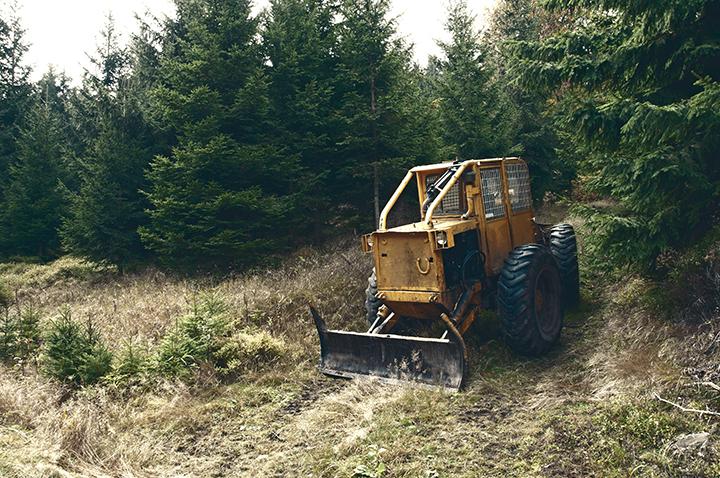




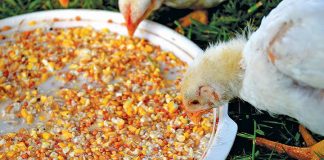






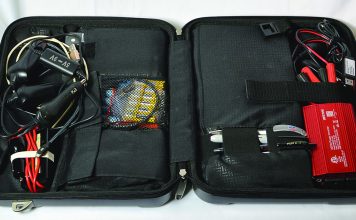
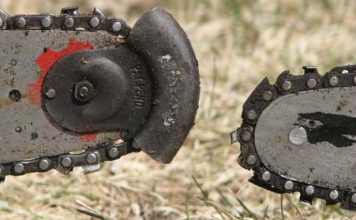
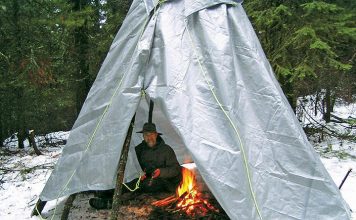
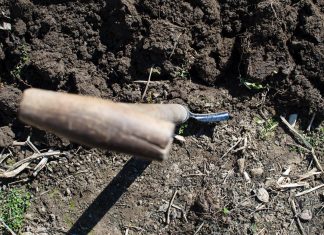
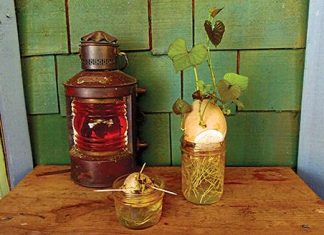
It IS outdated. The date of the article is 2004. But the principles are still sound.
You cannot afford to sell firewood for $25-35 a pickup load with the cost of fuel nowadays and your time. It is not just cutting it (chain saw and maintenance), but loading and delivering it if your truck and time. The only way this will work is if the landowner cuts it himself (due to liability issues) and the buyer picks it up and loads it himself from where the trees fell and are still lying. (The landowner may not even want people on his property due to liability issues. The risk is too high. And what if they get their truck stuck?) Few people are this ambitious. They also consider the cost of their own time and gas. We have always been willing to give firewood to the poor, but only one charitable organization has ever showed up. (It was a group of ex-felons trying to help themselves and they were good workers.) There is plenty of free firewood avail in forested areas–esp. after each windstorm comes through–so few buyers. In mnay natyional forests, you can buy a wood-cutting permit for up toi 10 cords for as little as $10. In any part of the country where trees grow in abundance, there is also a lot of firewood avail in cities after tree-trimming. The only way to sell firewood and make a decent profit is to charge a lot more, have a big truck and sell to people who cannot or will not do their own labor in larger cities. Maybe, even sell by the log truck load or big trailer–have a drop site or even cut it on location and have people ready to pick it up themselves on schedule. Leaving wood chips and sawdust scattered on a vacant lot would be ideal for a person who plans to turn it into a garden.
It seems the dollar amounts quoted in this article are outdated.